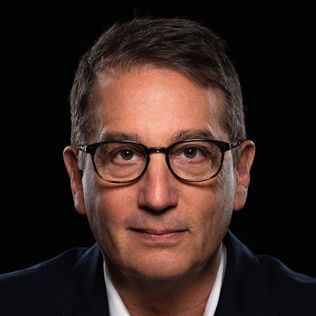My Dental Patient Came in Angry, But Left Happy – Here's What Happened
Sep 18, 2024One of my favorite books is by Stephen Covey. It's called The 7 Habits of Highly Effective People, and it's a book I've read many times. I think it’s time to read it again. He published this book in 1989, early in my career, and it helped guide me in making decisions I might not have made otherwise. One of those decisions was to develop a mission statement to define where I wanted to go. Another was how I spend my time—whether I’m mindlessly wasting it or engaging in purposeful activities.
There's a very interesting story in the book. It’s about a time when Stephen Covey was riding a subway in New York City. He was on the train with a man and his three young boys, who were running around, out of control, and not behaving well. Covey found himself judging the man, thinking he wasn’t a good father and that he should control his children, who were being very disruptive. We've all been in situations like that—whether on a train, in an airport lounge, or another public space where we can’t escape kids who are running around. We never know what people are going through.
After about five minutes of frustration, Stephen Covey turned to the man and asked him to control his boys because they were disturbing everyone else on the train. The man responded, “I’m sorry, we just came from their mother’s funeral, and I guess they’re a little upset.” At that moment, Covey felt terrible, realizing he had misjudged the man, who was dealing with something far more difficult than Covey could have imagined.
Why am I bringing up this story? Because in my office—I'm a dentist, a periodontist—there is often a tremendous amount of stress. Patients come in afraid, whether it’s the fear of pain, cost, or the unknown. They feel unsafe, and not everyone behaves well when they’re feeling that way. Some people handle it gracefully, and some do not. Viktor Frankl, in Man’s Search for Meaning, talks about how those who treated others with kindness in concentration camps survived longer. The people who shared their food, even while starving, fared better than those who hoarded it.
So, what does this mean for our practice? When patients approach us with anger, especially my administrative team, they may be coming from a place of pain or fear that we don’t understand.
This brings me to a story about a patient—I’ll call her Nancy, though that’s not her real name. She’s been a patient of mine for about 20 years, and she’s difficult. After her second consultation, I actually asked her to leave the practice. I didn’t think I could treat her because she didn’t trust me. But she refused to leave and begged me to treat her. So, I did, even though it might have been a mistake because she gave me a hard time for two years. However, the story has a happy ending—she had a full mouth rehabilitation and is doing well.
On this particular day, Nancy was in for a cleaning—her first in 2.5 years due to COVID. I told her it’s important to come in every three or four months because she has a mouthful of implants and prosthetics. She snapped at me, accusing me of just wanting her money. She stormed out, saying I only cared about the money. She argued with the front desk staff, but I didn’t hear about it until later. My staff was relieved that she left because she could be difficult, but she also had a good side. She’s a widow with a big personality, and she goes out every night to sing in bars. She also lost one of her five children before I started treating her, and she often mentions, “He’s up in heaven now,” which I acknowledge because it brings her comfort through her faith.
Despite her outburst, I didn’t want the story with Nancy to end negatively. As Danny Meyer says, “I like to write the end of my own story.” So, I called Nancy and told her I didn’t care about the money—I just wanted her to stay healthy. I offered to send her toothbrushes or even plastic instruments so she could clean her implants at home. I wanted to remove every barrier and rewrite the story. Nancy then told me that her son had died 12 hours before she came to my office—her second child to pass away, leaving her with only three out of five. She was in shock but still came in for her cleaning.
The next night, we attended her son’s wake and spent a long time talking with Nancy. She was so appreciative, crying and hugging me, telling me how much she loved me. It was a very different ending than if we had let her walk out of the practice angry. This is a dramatic example of how we never know what people are going through. When I walk into Starbucks, I don’t know what the barista is dealing with—just like our patients don’t know what we’ve been through. But as professionals, we have to show our best selves. Patients don’t always have that luxury.
It’s a privilege to work with patients who are sad. We never know where their sadness comes from. But if we can bring some joy, understanding, and empathy into their lives, it changes the relationship. Isn’t that what it’s all about—our relationships with our patients? Nancy and I are still friends. She’s coming back to get her teeth cleaned in a few weeks, and we rewrote the story. We were a gift to Nancy, and maybe she’ll be a gift to someone else.



